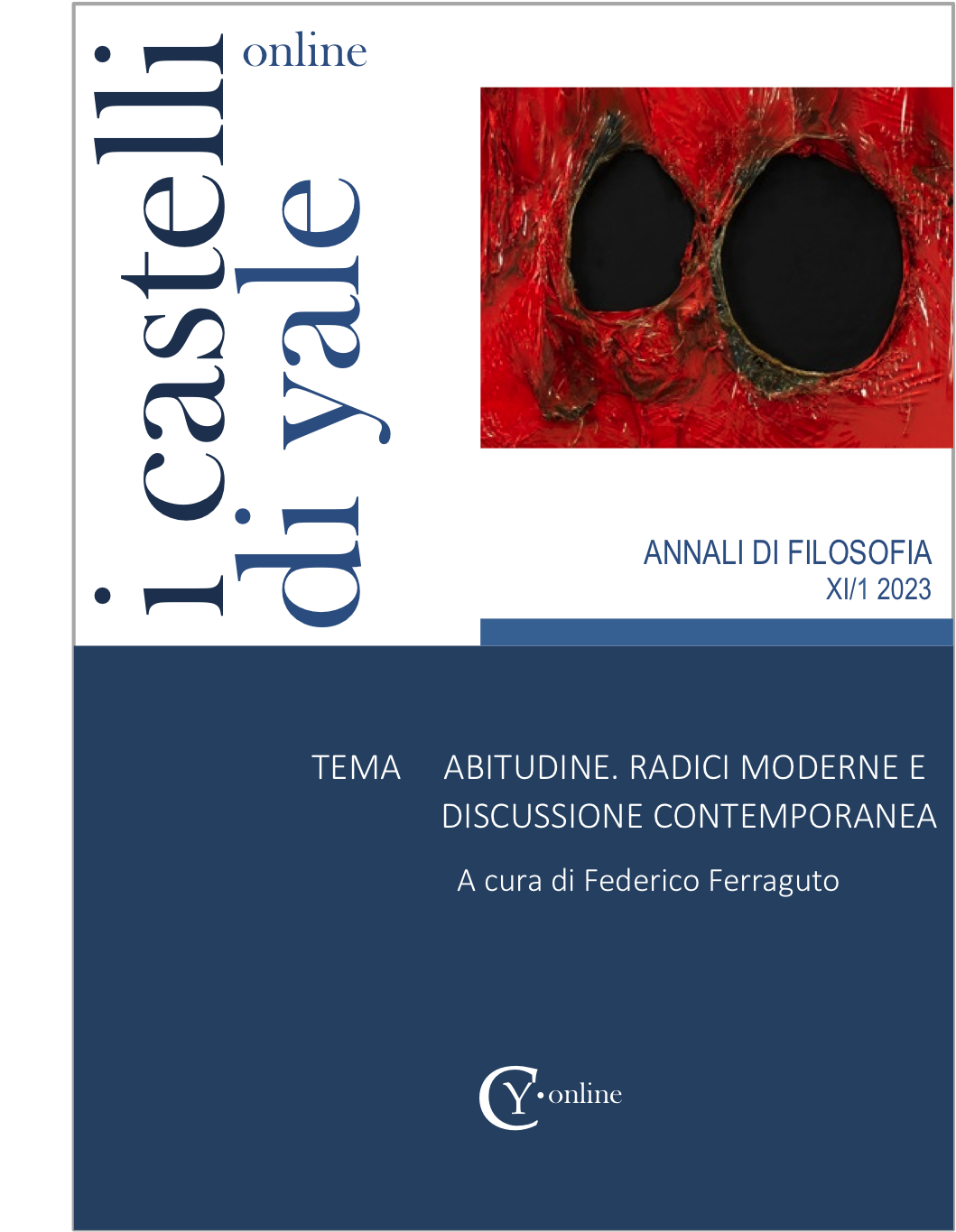Abiti e costumi: radici, sviluppi e problematizzazioni di una fortunata dicotomia
DOI:
https://doi.org/10.15160/2282-5460/2691Keywords:
Habits, Customs, Revolutions, Social Tranformations, RulesAbstract
Philosophical reflection on “customs” has ancient roots, which are rooted in more than one tradition of thought, and is intertwined with that on “habits”, producing a complex history of contaminations that cross medieval thought, marked by a substantially negative conception of the former. After the modern rehabilitation of “custom” in an anti-Scholastic function, one sees, throughout the 18th century, its substantial reunification with “habit”, both on an epistemic and epistemological level. However, the process of the “individualization of habit” produces, throughout the 19th century, an almost total disregard for “custom” within main philosophies of habit of the time. The theme of the failure of excessively rapid transformations of collective habits, which emerges in two articles published in 1876, one by Léon Dumont and one by Jules Renouvier, is taken up by John Dewey in his important reflection on habit and custom, which is here placed in dialogue with Pierre Bourdieu's theory on the reproduction and transformation of habitus and Ludwig Wittgenstein’s theory on acting by rules.


